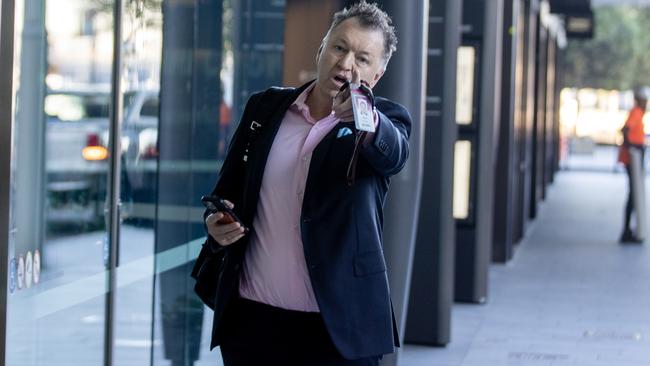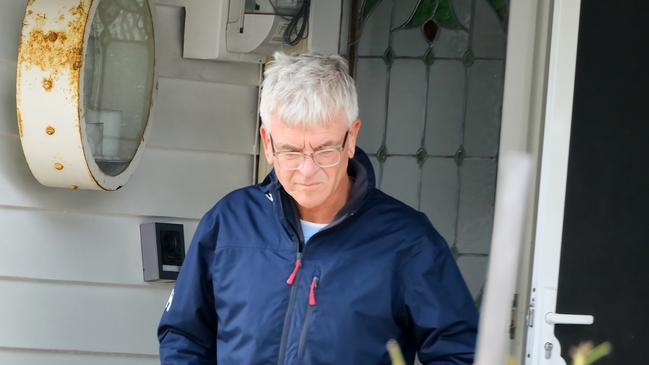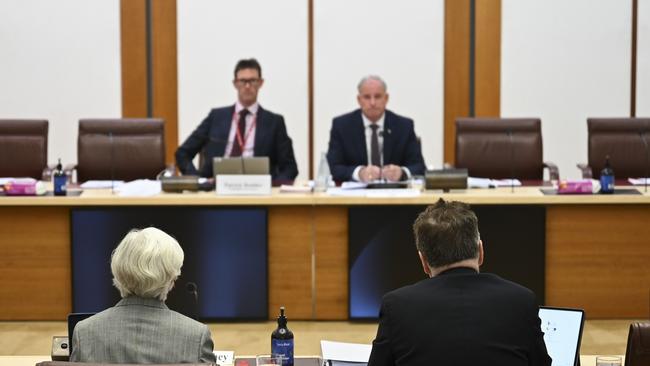AFP reveals state of PwC tax scandal investigation, amid concerns over delays
A series of Freedom of Information searches have revealed details of the AFP investigation into PwC Australia’s tax scandal.

The Australian Federal Police investigation into the misuse of confidential government tax information by partners at audit and consulting giant PwC Australia has assembled just three documents, almost two years after the matter was first raised.
A Freedom of Information search has seen the AFP report a trio of documents held by its teams relating to Operation Alesia, the police investigation into the PwC tax leaks.
The AFP was first handed the brief into PwC by Treasury in May 2023.
However, the AFP warned they would not release the documents, cautioning they could “reasonably be expected to prejudice the conduct of a current investigation”.
An AFP FOI officer warned granting access to any of the three documents “could reveal lines of inquiry by the AFP, which would reasonably be expected to prejudice the conduct of a current investigation”.
Operation Alesia is examining whether former PwC partners breached Section 70 or Section 90 of the Crimes Act, which relate to the disclosure of information and official secrets.
The AFP is investigating a handful of partners at PwC alleged to have been key to the firm’s misuse of confidential government tax briefings, secured after the firm’s then-head of international tax Peter Collins leaked the information from a private consultation process.

Mr Collins signed three separate confidentiality agreements with Treasury in 2013, 2016 and 2018 as part of his consulting to government.
Sources have said the investigations are focused on four former PwC partners.
Further FOI searches by the AFP, after requests by The Australian, have also shed light on elements of the police investigations into the tax leaks.
AFP records reveal investigators are sitting on 32 documents which reflect correspondence exchanged between police and PwC in relation to Operation Alesia.
But, the AFP refused to detail the nature of the documents, warning they contained information “brought into existence for the dominant purpose of obtaining or providing legal advice”.
An AFP FOI officer said the documents were likely to “be subject to a claim of legal professional privilege and justifiably withheld from production”.
“The AFP has not waived privilege over these folios,” she said.
It is likely many of these documents were seized from PwC late last year when police raided the firm’s Sydney office in Barangaroo.
The AFP raid, which started on November 4, saw plainclothes detectives search PwC records over several days.
AFP acting commissioner Ian McCartney told a Senate inquiry the week following the raids investigations were being crimped by “the existence of derivative use immunity connected to other investigations, and legal privilege”.
A PwC spokeswoman said the investigations related to “historical matters”, noting the firm would “continue to fully co-operate with the Australian Federal Police’s investigation, as we have from the beginning”.
“Out of respect for the AFP’s work, we won’t be commenting further,” she said.
Police have also raided two homes in Melbourne in connection to investigations, including a search of Mr Collins’ house in suburban Sandringham, as well as a separate property in Sorrento, on the Mornington Peninsula.
Mr Collins did not respond to attempts to contact him.
Attempts to access the AFP’s case categorisation and prioritisation model log, relating to the investigation into the PwC tax scandal, were also blocked by the agency.
The AFP uses CCPM (critical chain project management) to determine which cases merit its attention as well as allocating resources.
The AFP’s FOI team said disclosing the log was likely to affect its ongoing investigation.
An AFP spokeswoman said the agency would provide an update on its investigations “at an appropriate time”.

But, sources close to the PwC tax scandal noted the lengthy delays from the AFP in dealing with the matter, with only limited searches and a handful of interviews of former PwC figures connected with the firm’s tax business conducted so far.
The AFP dropped an earlier attempt by the Australian Taxation Office to refer the PwC tax leaks for investigation.
University of Wollongong Associate Professor Andy Schmulow said he didn’t have any confidence in the AFP’s investigation, warning it was a complex and difficult matter and pointing to the AFP’s track record in grappling with complex white collar crime cases.
“When it comes to white collar stuff they’re absolutely useless, I can’t point to a successful prosecution the AFP has launched for white collar crime,” he said.
Dr Schmulow pointed to the AFP alerting PwC it would raid the firm’s Sydney office as concerning.
“That is pure theatre, you don’t raid someone by telling them two weeks in advance,” he said.
Greens Senator Barbara Pocock, who was key to the parliamentary scrutiny of the PwC scandal, said she found it curious the AFP had said the audit and consulting firm was “cooperative” with investigations “when the fact that they had to get a search warrant and conduct a raid on the PwC suite at Barangaroo tends to suggest otherwise”.
“This global consulting behemoth has frustrated every investigating authority trying to root out the people involved in the tax leaks scandal,” she said.
“Whether it be the Senate, the ATO, the Tax Practitioners Board or the Australian Federal Police, PwC have tried to obscure and conceal vital information at every step.”
Labor Senator Deb O’Neill said was concerned PwC Global had sought to obstruct investigations into the tax scandal.
“This is a deeply concerning reality, the impacts of which on the AFP’s investigation, along with the investigations of regulatory bodies such as the tax practitioners board, remains unclear,” she said.
“We expect everyone, in Australia and abroad, who has knowledge of the tax leaks scandal to fully co-operate with law enforcement and help ensure those responsible are held to account.”






To join the conversation, please log in. Don't have an account? Register
Join the conversation, you are commenting as Logout